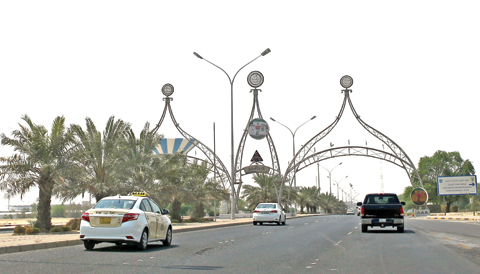KUWAIT: Recent Public Authority for Civil Information (PACI) statistics revealed that Ahmadi governorate has a majority of Kuwaiti residents, while Farwaniya has a majority of non-Kuwaiti residents. According to statistics, Ahmadi's total Kuwaiti population is 290,000, compared to 942,000 non-Kuwaitis residing in Farwaniya. Statistics also showed that Farwaniya is the most densely-populated governorate with 1,175,000 residents, while Mubarak Al-Kabeer is the least populated with a total of 262,000 residents.
Statistics also showed that the Capital governorate has a total population of 573,000 (260,000 Kuwaitis and 313,000 non-Kuwaitis), while the total population of Hawally is 947,000 (233,000 Kuwaitis and 713,000 non-Kuwaitis), the total population of Ahmadi is 985,000 (290,000 Kuwaitis and 694,000 non-Kuwaitis) and the total population in Jahra is 555,000 (193,000 Kuwaitis and 361,000 non-Kuwaitis).
In addition, statistics showed that Saad Al-Abdullah is the area most densely populated by Kuwaitis, with 63,000 residents, followed by Sabah Al-Salem with 53,000 residents and Sabahiya with 37,000, followed by Rumaithiya, Jaber Al-Ali, Ardiya and Abdullah Al-Mubarak with 35,000 residents each.
Oil sector
Official oil sources said a total of 2,553 employees have been appointed in the oil sector over the past two years, including 2,004 citizens, in addition to 694 noncitizens appointed through contractors. "Citizens make up 26 percent of contractors' staff," the sources said, noting that starting from this fiscal year, this percentage was raised to 30 percent in all new contracts.
The sources expected the total number of employees working in the oil sector to reach 26,000 by 2021. They added that as part of the policy of replacing expatriate employees with citizens, oil sector companies have classified their staff into three categories - easily replaceable, gradually replaceable and hard to replace. The sources added that the policy will be applicable to the first two categories in the short term, and there are long term plans to replace the third category by 15 percent annually.
Labor allowance
Minister of Social Affairs and Labor and Minister of State for Economic Affairs Hind Al-Sabeeh announced that the Manpower and Government Restructuring Program (MGRP) and the Civil Service Commission (CSC) have agreed to pay the national labor support allowance by the 25th of every month. Sabeeh also noted that CSC had been contacted on March 11 to arrange for paying the allowance to citizens working in non-governmental bodies. Moreover, Sabeeh stressed that transferring MGRP to the Public Authority for Manpower is part of measures to achieve economic and financial reform through merging or scrapping some authorities to cut expenses. She added that this merger was done on April 1, 2018 with the advent of new fiscal year 2017-2018.
Separate authority
The Interior Ministry yesterday rejected a proposal by the parliamentary interior and defense committee to establish a separate authority for criminal evidence and forensic medicine. In its rejection, the Interior Ministry explained that article 39 of law 17/1960 states that the police is the administrative body authorized to maintain order and prevent crimes and conduct investigations needed to identify culprits.
By A Saleh











